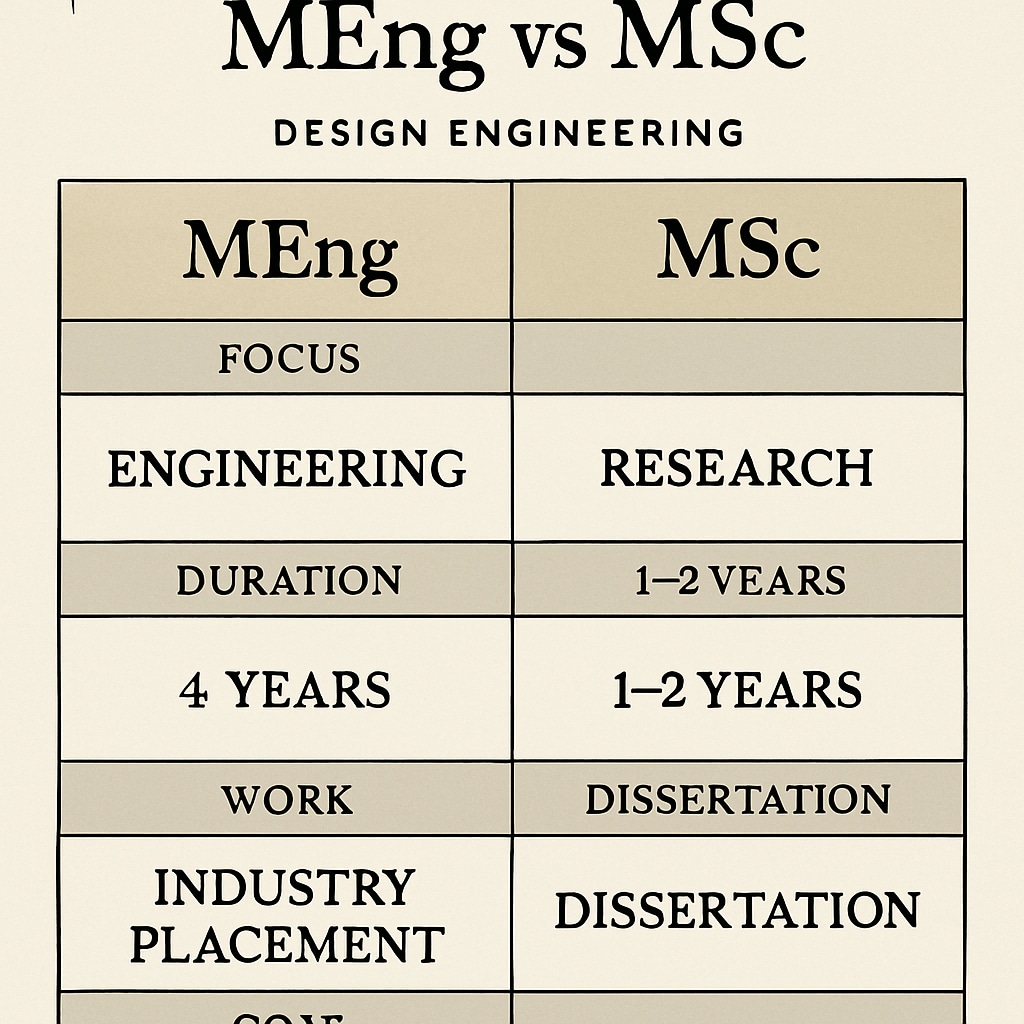The decision to pursue advanced studies in design engineering often hinges on understanding the difference between an MEng (Master of Engineering) and an MSc (Master of Science). By planning ahead during the K12 years, students can strategically align their coursework and extracurricular activities to support their career aspirations. This article delves into how K12 education can shape future career paths, particularly within design engineering, and evaluates the impact of choosing between MEng and MSc degrees.
Building a Strong Educational Foundation in K12
During the K12 years, students have the opportunity to explore their interests and develop foundational skills that will serve them in higher education and professional life. For aspiring design engineers, prioritizing STEM (Science, Technology, Engineering, and Mathematics) courses is crucial. Subjects like physics, mathematics, and computer science provide the analytical and technical skills necessary for engineering programs. In addition, participating in extracurricular activities such as robotics clubs or coding workshops can give students hands-on experience and a competitive edge in university applications.

Choosing Between MEng and MSc in Design Engineering
When considering graduate education in design engineering, students often face the choice between pursuing an MEng or an MSc degree. The MEng is typically a professional degree focusing on practical engineering applications, making it ideal for individuals aiming for industry roles. On the other hand, the MSc is more research-oriented and emphasizes theoretical knowledge, which is well-suited for students interested in academia or advanced research positions.
Key factors to consider when making this decision include:
- Career goals: Industry-focused roles may benefit from an MEng, while research and academic careers align better with an MSc.
- Program structure: MEng programs often include internships or co-op opportunities, whereas MSc programs may involve a thesis or research project.
- Time commitment: MEng degrees are sometimes shorter in duration compared to MSc programs.

The Role of Career Planning in Educational Choices
Effective career planning starts early. K12 students should think critically about their interests and long-term goals to make informed decisions about their educational paths. For example, students interested in design engineering may benefit from seeking mentorship, attending engineering fairs, or exploring summer programs related to their field. By gaining exposure to various aspects of engineering, they can determine whether they prefer hands-on applications or theoretical research, guiding their future degree choice.
Moreover, selecting a university program that aligns with personal and professional aspirations is vital. Some programs offer specialized tracks in areas like sustainable design, robotics, or human-centered engineering, which can enhance career prospects. To make the most of these opportunities, students should research universities thoroughly and consider factors like faculty expertise, facilities, and industry connections.
Conclusion: Setting the Stage for Success
By carefully planning their K12 educational journey, students can build a strong foundation for future success in design engineering. Choosing between an MEng and MSc degree depends on individual career goals and program structures, but both paths offer unique advantages. Ultimately, the key is for students to align their choices with their passions and aspirations, ensuring they are well-prepared to excel in their chosen field.
For more insights into career planning and education in engineering, explore resources like Engineering Education on Wikipedia or Engineering on Britannica.


